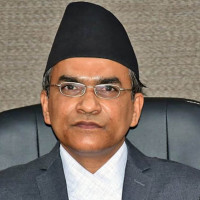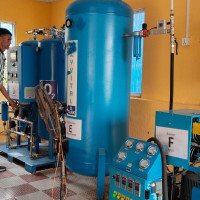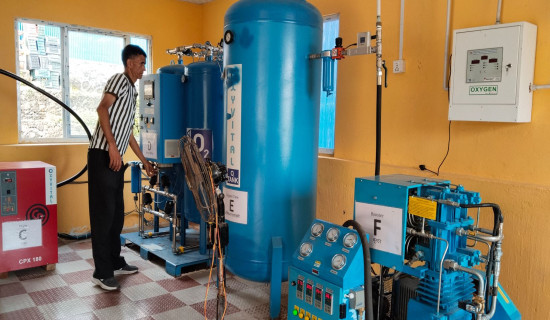- Tuesday, 10 June 2025
Alpha Male Paradox
In modern South Asia, including Nepal, there is a developing discussion on the present-day meaning of being a "strong man." Youth in Delhi and Kathmandu are accepting the international "alpha male" discourse that promises dominance through unbreakable confidence and command over others. The global concept risks strengthening traditional gender standards and creating new conflicts because societal structures involving unemployment have evolved.
The alpha male role provides South Asian men with a fast path to achieving respect when their social world seems erratic. Andrew Tate and other influencers reach Nepali and Indian audiences by spreading a message that masculinity comprises financial success and physical dominance over others, despite Nepal's 20 per cent youth unemployment rate and fierce Indian competition among students. This attractive solution helps people avoid negative feelings of insufficiency.
The traditional regional societies have established male dominance through their norms, which grant men financial leadership and decision-making authority and family protection responsibilities. Within the alpha male script, dominance and emotional restraint are presented as two desirable traits for men. When women expand their presence in both professional settings and political realms, certain men interpret these developments as an impending menace to their dominion. The alpha mantra now serves as a battle cry that people use to recover power that they believe has been lost.
But the alpha male’s rigid rules clash with South Asia’s collectivist values. Community members in this region function through cooperative relationships instead of following independent ways of living. Men who are urged through masculine stereotypes to hide their sadness and fear experience breakdowns in their relationships. A Nepali father who manages debt issues quietly and a Bangladeshi student who declines mental healthcare for fear of shame both demonstrate this problem.
The cultural pattern we witness right now brings backward-thinking patterns into society. TikTok videos in India promote the image of dominating women, whereas Pakistani alpha podcast content rejects feminism as an unreal Western conspiracy. These narratives create an obstacle to gender equality advancements, putting the region at risk due to its high rate of violence against females. Such restrictive masculinity patterns drive away men who differ from typical male characteristics such as being quiet or working with others or being home dads.
South Asian men should be given better options than the harmful traditional model. Each part of South Asia maintains its distinctive ways to achieve masculine balance. The Gurkha soldiers of Nepal earn their status from their courageous behaviours combined with their dedicated humility towards their community members. Sikhism teaches its followers to link bravery with helping others through compassionate service. Real strength requires individuals to gain command over their own being rather than impose power over others according to traditional beliefs of the region.
A progressive movement demands facing and confronting outdated and modern stereotypes. The education system, together with families, should teach boys that being vulnerable does not indicate failure, just as the Indian "men against violence and abuse" campaign demonstrates. Market economies should offer sufficient possibilities to prevent men from linking their personal value to monetary success and physical dominance.
Men pursuing success in South Asian society must avoid suppressing anyone or denying their own inner selves for community harmony to exist. The purpose should be to raise instead of rule: masculine strength that brings success through active labour and profound emotional connections while raising women instead of fighting with them. The future of modernity demands that Nepal and its neighbouring countries must decide between keeping outdated foreign ideas that deepen social division and creating their own definitions of masculinity.
















